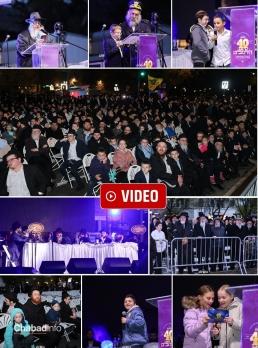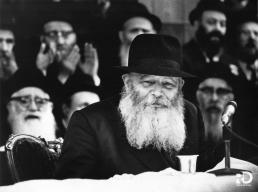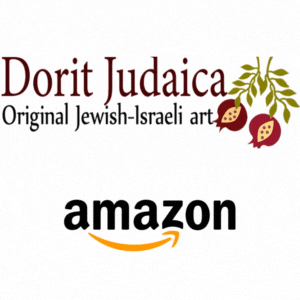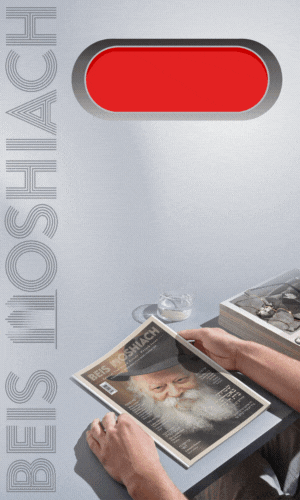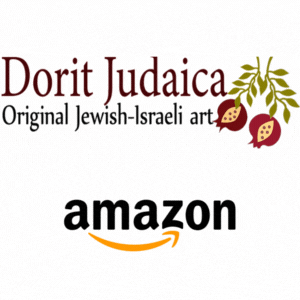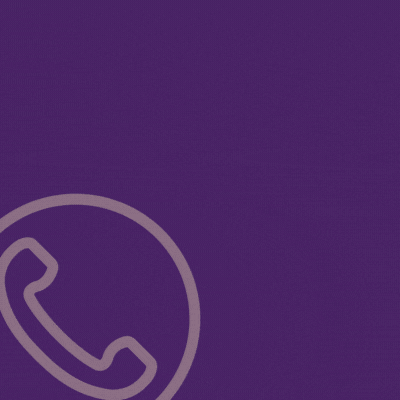BREAKING: New York Passes Regulations Giving State Control Over Secular Studies Curriculum in Private Schools
The State Board of Regents voted Monday to approve new regulations on secular-studies in private schools, requiring each school to prove to state officials that their curriculum is “at least substantially equivalent” to that offered in public schools. Passage of the regulations transforms the relationship between government and private schools in the Empire State, and caps a years-long battle over what secular education each child deserves and whether it should be determined by parents or governmental authorities • Full Story
Via Hamodia
NEW YORK — The State Board of Regents voted Monday to approve new regulations on secular-studies in private schools, requiring each school to prove to state officials that their curriculum is “at least substantially equivalent” to that offered in public schools. Passage of the regulations transforms the relationship between government and private schools in the Empire State, and caps a years-long battle over what secular education each child deserves and whether it should be determined by parents or governmental authorities.
The regulations would require all private schools to either offer Regents exams, be accredited by an approved accrediting body, or have its curriculum assessed and approved by the local school authority. Children attending schools failing to meet one of these criteria would be considered truant, and their parents may be fined or eventually jailed.
The “substantially equivalent” law has been on the books since the late 19th Century, but the law never delineated how “substantial equivalency” is determined. If a complaint arose about a particular school, authorities could investigate it, but there was no specific criteria to determine substantial equivalency, or requirement of pre-certification. A decade ago, some former New York City yeshiva students began alleging that they hadn’t received a substantially equivalent secular education, and the city’s Department of Education has been conducting a years-long investigation into some two dozen yeshivas.
But in 2015, the State Education Department began working to formulate specific regulations to define and require pre-certification of substantial equivalency.
A heated battle ensued — in the halls of government, in newspapers and on social media — pitting those who allege some yeshivas offer a poor secular education that inadequately prepares students to earn a livelihood and be a part of contemporary society, against those who say that parents should have autonomy in deciding their children’s education in a manner consistent with their religious beliefs, that the totality of a yeshiva education is superior to that offered in public schools, and that yeshiva graduates live more productive lives than do public-school graduates.
Tuesday was the first time the Board of Regents — the state Education Department’s governing body — actually voted on substantial-equivalency regulations, though the Department released proposed guidelines several times previously.
The first iteration of proposed regulations, released in late 2018, mandated specific courses of study and the minimum number of hours to be dedicated to each subject. Private schools would have been placed under the purview of the local school authority (LSA) — the schools chancellor in New York City and local school boards elsewhere — which would have to assess each school and determine whether it was substantially equivalent. Yeshivas, Catholic schools and independent private schools objected to these regulations, arguing they were an undue interference in parental and religious rights.
Those proposed regulations were struck down by a judge on procedural grounds in April 2019, then released again under proper procedures in July 2019. But during the subsequent 60-day public-comment period, about 140,000 comments were submitted to the State Education Department (SED), nearly all from yeshiva parents and graduates opposing the rules. SED then withdrew the proposed regulations and conducted meetings with stakeholders before releasing the new proposed regulations in March of this year.
The new regulations offer private schools several pathways to avoid the LSA review, including offering a Regents program or being accredited by a certified accrediting body. Yeshiva groups deemed this an improvement over the previously proposed regulations, but strongly objected nonetheless into what they deemed an inappropriate intrusion into parental and religious liberties.
More than 350,000 comments were submitted the 60-day public-comment period, the vast majority from yeshiva graduates opposing the regulations. But the Education Department put the regulations, with no significant emendations, for a vote by the Board of Regents, and it passed unanimously Tuesday.
Yeshivas will likely focus on one of the alternate pathways to substantial equivalency, so as to avoid LSA review. While at least six alternate pathways exist, such as if a school participates in the international baccalaureate program or is a state-approved private special-ed school, the two pathways most relevant to yeshivas are that of being registered as offering Regents exams or being accredited by an SED-approved accrediting organization.
If a high school offers Regents exams, the entire school, including its elementary grades, is deemed substantially equivalent. But a school that is elementary-only (as are many yeshivas outside Brooklyn) may not use this option.
Accreditation by an approved body option appears to be the next-best option for private schools seeking to avoid LSA review — though there are virtually no accrediting agencies that have dealt with the yeshiva community. Yeshiva groups will now likely renew efforts to establish accrediting agencies dedicated to serving their community.
If a school does opt for the LSA review and approval, there are no defined hours of study for specific courses, but the LSA would look at the school’s curriculum in the core subjects of English, math, science and social studies, as well as patriotism and citizenship; history; the significance and the effect of the provisions of the Declaration of Independence, the United States Constitution and the New York State Constitution and their amendments; New York State history and civics; physical education; health education regarding alcohol, drugs and tobacco abuse; highway safety and traffic regulation; fire drills, fire and arson prevention and injury prevention, and CPR and AED use. It is not clear whether the school is required to teach each of these subjects, or if it may omit or substitute several.
By December 1, 2023, private schools must demonstrate that they meet one of the alternate pathways, or choose to have an LSA review. The initial review would be conducted by no later than the end of the 2024-2025 school year, though a school may request additional time to demonstrate substantial equivalency.
Religious schools, student and parent body, and organizations might seek to sue to enjoin the regulations as a violation of religious liberties, though no groups announced a lawsuit in the immediate aftermath of Tuesday’s vote.
100
Join ChabadInfo's News Roundup and alerts for the HOTTEST Chabad news and updates!
















